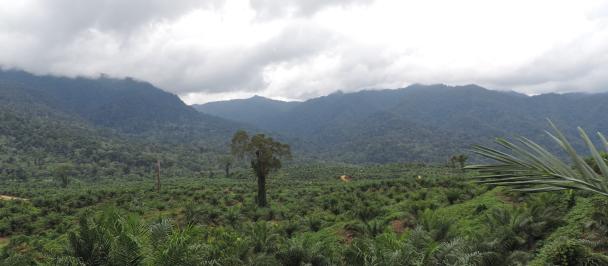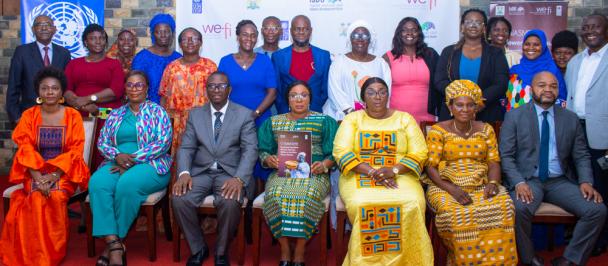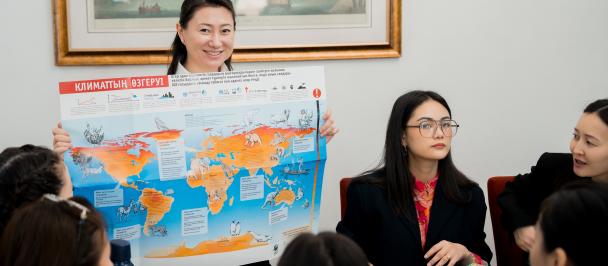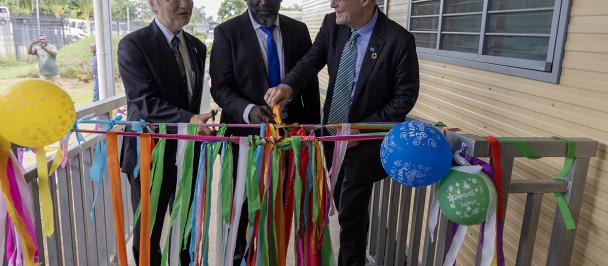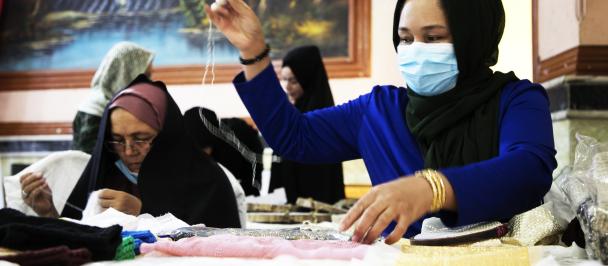By Mireille Uwera
Seeds of Change: A Rwandan Woman's Inspiring Transformation through the Green Amayaga Initiative
May 17, 2023
A photo of the Amayaga Region where UNDP Rwanda is working to restore degraded forests
Rwanda's Amayaga region, once known for its lush forests, has suffered degradation and slow desertification due to rampant deforestation. This has had severe consequences for local people and communities. Trifine, a 39-year-old-woman with three children, who owns a small hillside farm, represents the struggles faced by many families in Amayaga. Soil erosion caused by deforestation made it difficult for her to cultivate anything on her land. She barely harvested enough food for her family. The degraded ecosystem caused a shortage of water and wood for fuel. Food production declined, while hunger and poverty worsened across the region.
However, hope emerged following the launch of the Green Amayaga project, a collaborative effort between the Government of Rwanda and UNDP Rwanda. This 6-year project aims to restore biodiversity, enhance agricultural productivity, create jobs, and uplift the livelihoods of local communities.
Revitalizing Agriculture and Restoring Ecosystems: Along with her neighbors, Trifine took part in the project: planting trees and building radical terraces and trenches that combatted soil erosion and revitalized agricultural productivity. Within 2 years, Trifine was able to harvest over 84kgs of maize and more than 200 kgs of beans to feed her family and have surplus for sale. With the project's support, she starts cultivating fodder for her cow, resulting in increased milk production and improved nutrition for her family. Trifine's success serves as a testament to the broader impact of the Green Amayaga Project.
The project aligns with UNDP Rwanda's Country Programme Document (CPD), specifically focusing on Outcome 2. This outcome aims to strengthen the Government of Rwanda's institutional capacity for environmental and natural resource management, while also addressing the impacts of climate change. It achieves this by providing training to public institution and civil society organization staff, financial support to farmers, and the distribution of essential agricultural inputs such as improved seeds. These comprehensive efforts contribute to the successful implementation of projects like Green Amayaga, facilitating sustainable development in Rwanda.
Tangible Results and the Road Ahead: Since the project kicked off in 2020, over 35,000 hectares of degraded ecosystems have been restored in the Amayaga region, creating hundreds of jobs for local residents. Additionally, the project has played a crucial role in providing clean cooking energy solutions, such as improved cook stoves. The cook stoves reduce deforestation pressures and lessen the time and labor needed for the collection of firewood.
Despite these achievements, however, many households in Rwanda still struggle to afford such solutions. Recognizing this challenge, UNDP Rwanda is working closely with the government to explore innovative financing mechanisms, such as the development of Rwanda's carbon trading framework. These initiatives aim to reduce the cost of clean cooking energy and allow for more investment in the protection of natural resources.
Trifine's story resonates with households across Rwanda that face similar hardships. UNDP Rwanda remains steadfast in its commitment to improve the lives of Rwandans by protecting the environment and addressing climate change. Each restored wetland and rehabilitated ecosystem represent a transformed life and family. By sharing Trifine's story and highlighting the Green Amayaga project, UNDP Rwanda aims to inspire and encourage further efforts toward environmental preservation and sustainable development in Rwanda. More about the project here.

 Locations
Locations